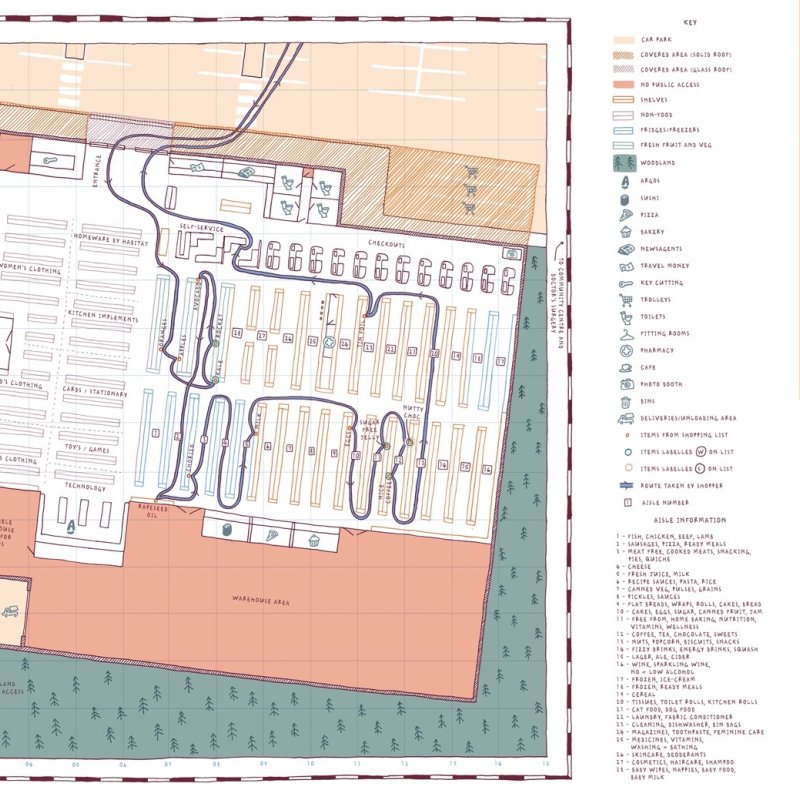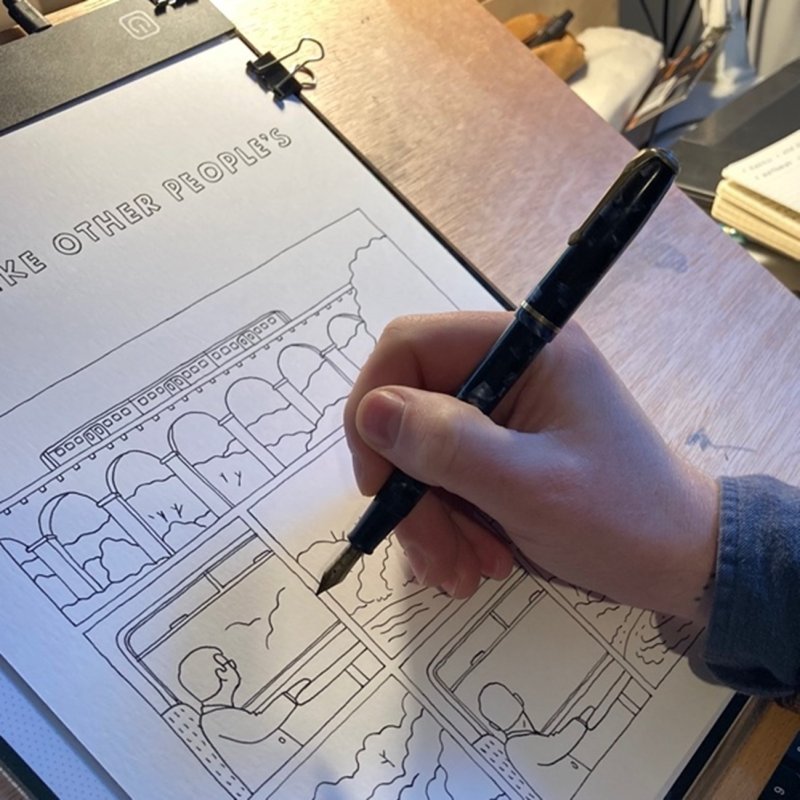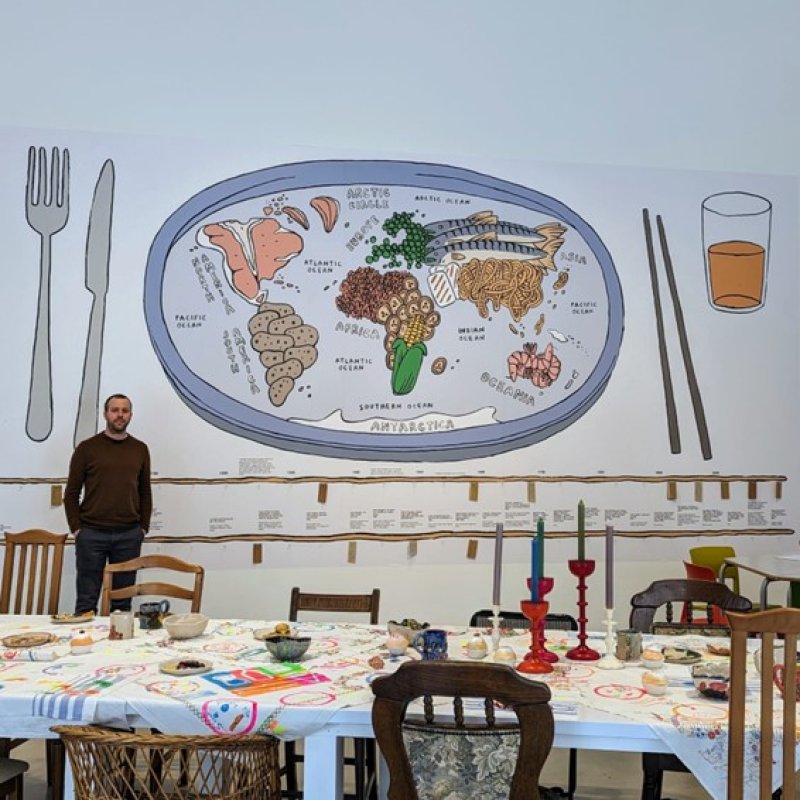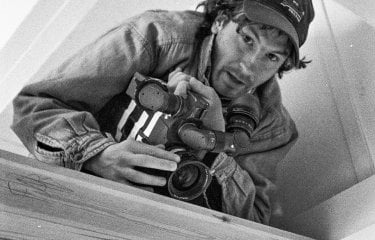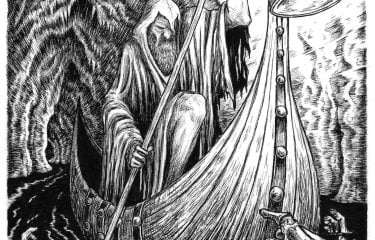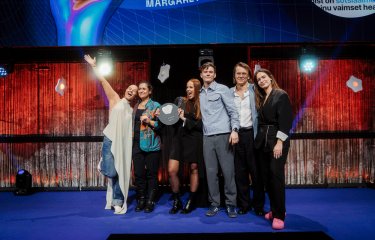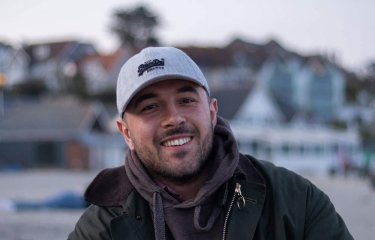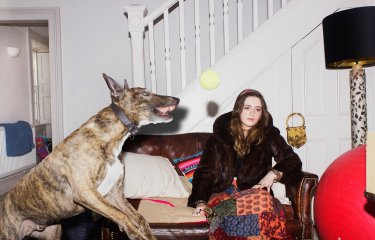From lab technician to award-winning illustrator: meet Tim Bird
25 November 2024
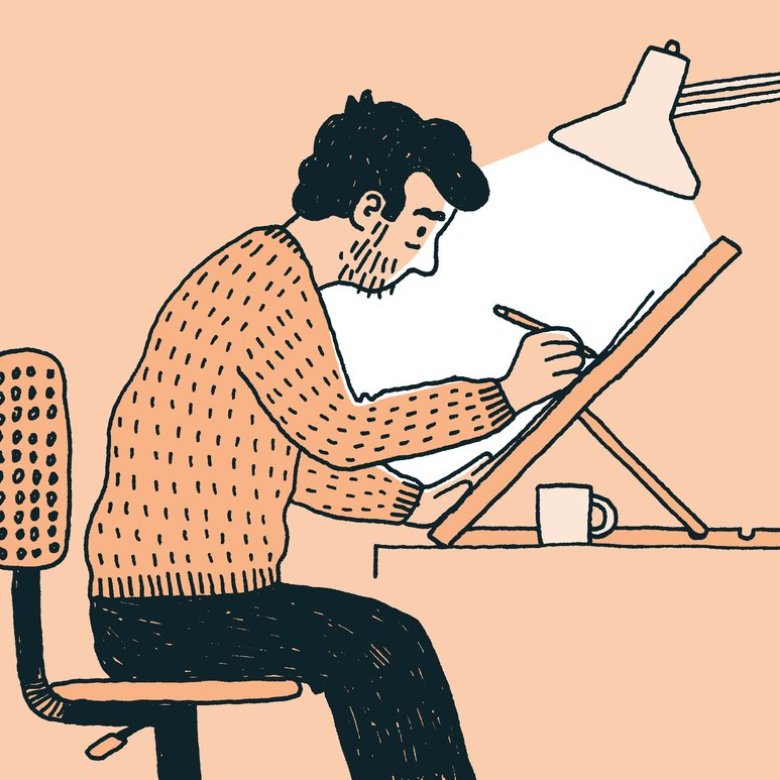
Illustration MA (Online) graduate Tim Bird knew he was creative from a very early age. Yet when his creativity failed to be nurtured at school, he pursued a different path that led him into the labs as a technician.
Fast-forward to today; Tim has a flourishing career as an illustrator, working with clients including The London Wildlife Trust, publishing work through Avery Hill Publishing, and even scooping awards for his comics. We caught up with Tim to find out how he turned his creativity into a successful career.
Have you always been a creative person?
I grew up in a creative household – my mum was a keen painter, which is actually the subject of my new graphic novel, Adrift on a Painted Sea. I loved drawing – especially making comics and cartoons. My school wasn’t very encouraging, though, and I went down a different route academically; I ended up doing a degree in chemistry and eventually working as a lab technician.
I think science can be a very creative subject as it involves a lot of abstract thinking and problem solving, but I kept drawing in my spare time and discovered the worlds of zine-making and self-publishing comics. I started making my own comics, and creating a physical object which I could show people felt like a real breakthrough moment for me – it was the thing I’d been missing up to that point.
When did you realise you wanted to pursue illustration as a career?
I think the idea of turning my ‘hobby’ into a career developed slowly as I grew more confident with my work. After my daughter was born, I quit my job as a lab technician to be a stay-at-home dad as my wife was earning much more money than me! I got more involved with the small press comics community and started selling my work at events like the East London Comics and Arts Festival and the DIY Arts Market.
As a narrative illustration specialist, what do you love the most about this form of illustration?
One of my earliest memories is reading Tintin with my dad and getting obsessed with collecting all the books, so I think comics are ingrained into me in some way! They’re a visual form of communication, so are read quite differently from written pieces, despite both formats being presented in book form; I see comics as a half-way point between prose and film. Once you realise comics are their own unique medium, you start to see that they can communicate ideas in a way that can’t be achieved through other means; they become so much more than just illustrated stories. The artist can use the structure of the page and pacing of panels to create something like a visual form of poetry, even when they don’t use words.
Having worked for a wide range of clients, including Teatro Vivo, The London Wildlife Trust and The John Hansard Gallery, is there a particular project you are most proud of?
The map I drew for the John Hansard Gallery was my most technically challenging project as it was so large, and I’m really proud of the outcome. They wanted it to fill a wall of the gallery, to be the backdrop to an exhibition, so it had to be 6 metres wide! I wanted to draw it by hand but colour it digitally, so I had to scan it in sections at a high resolution and fit it all together in Photoshop.
The project came about through the work I did for the Visual Language module of my Illustration MA course where I drew a map of my local supermarket. I took my map with me to a local zine fair and a couple of people from the gallery saw it; they got in touch with me afterwards to say they were putting on an exhibition about people’s connections to food and liked the idea of creating a map.
What made you choose to study MA Illustration (Online) with Falmouth?
I’d started to feel a bit fed up with comics – I enjoyed making them, but they weren’t financially viable as a career. I felt that I wanted to do more commercial work and hoped studying illustration would lead to opportunities to do this. Ironically, the Illustration MA re-kindled my passion for comics and helped me discover ways of funding them through organisations like the Arts Council and my social media audience via Kickstarter.
What was your favourite thing about studying online?
Meeting all the people was the best bit – both the tutors and the other students. Being an online course meant that everyone came from such different walks of life and brought their own ideas, so it was great to share those, and it inspired me to think about my work in new ways.
Another thing I liked about it being online was the ability to join in discussions using the typed chat function. I’ve always been quite an introverted person, so I sometimes hold back from speaking up in group discussions. Being able to type my ideas out meant I had time to formulate my thoughts more clearly and comfortably.
How did you practice evolve while on the course?
I’ve developed a much deeper interest in materials and moved away from drawing digitally. This started in the first module – Process and Practice – when we looked at material consciousness. I saw that there could be a connection between what we draw and how we draw it, so I used my grandfather’s fountain pen to make a short comic about him. I find the tactility of using analogue materials much more enjoyable than digital tools. I think making time to find pleasure in my creative practice has been important.
What does the future hold for you and your work?
In a way, I feel like I’m back where I started – making comics! But having been on the journey of the Illustration MA, I feel more equipped to make this a sustainable career. As such, my immediate plan for the future is to apply for Arts Council funding. I have an idea for a new graphic novel, but it's in its very early stages, so probably won’t be finished for a few years. Doing the MA has encouraged me to experiment more – both with materials and visual language, and also with ideas – pushing concepts and looking at alternative ways of presenting my work.

